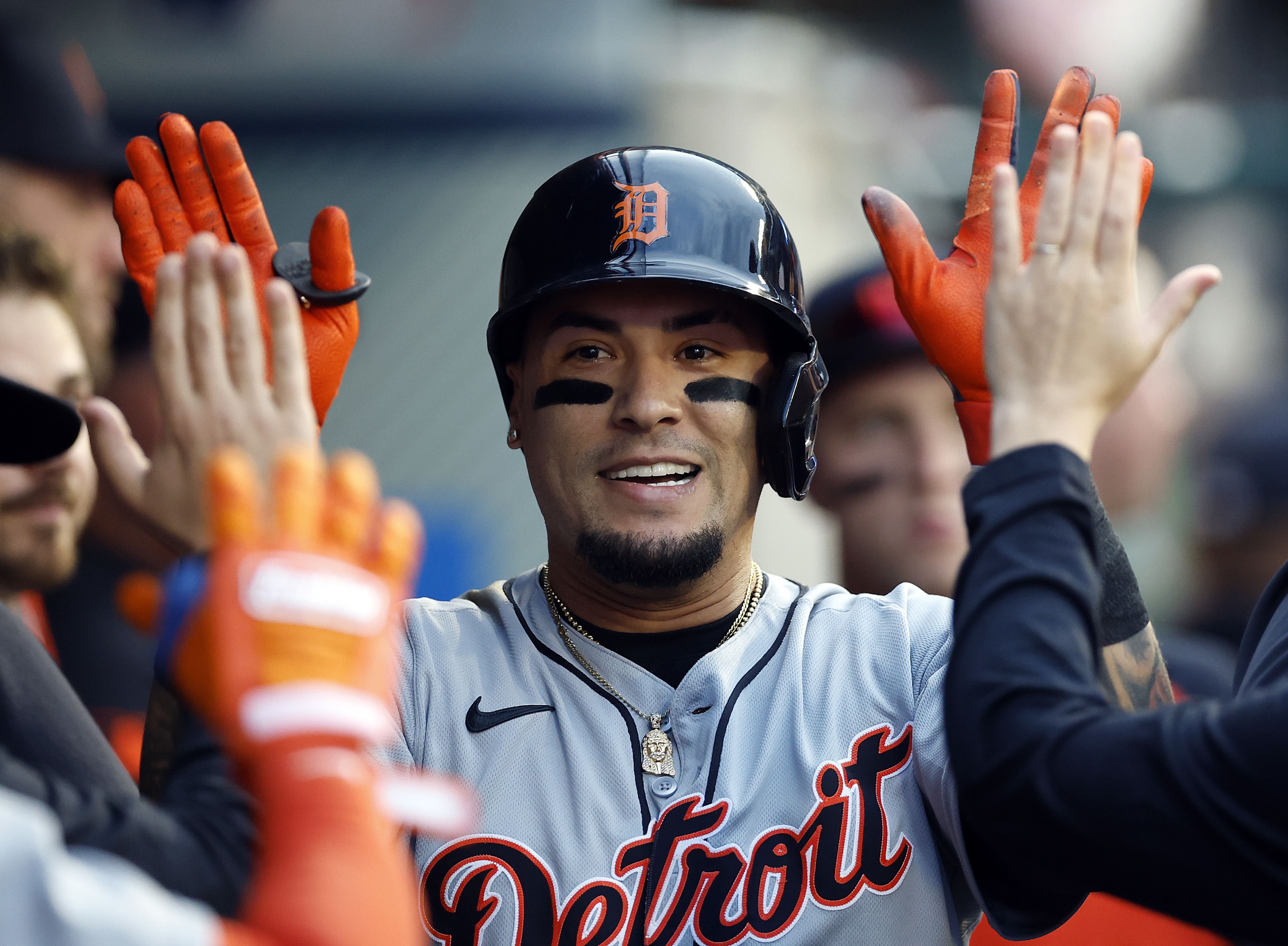Javier Báez walked off the field last night with no words, no fanfare, and no statement to the press. He didn’t argue with the umpire. He didn’t wave to the fans. There were no angry gestures or dramatic goodbyes. Just quiet tears and a slow walk down the dugout steps. To most, it seemed like just another frustrating night in a difficult season. But for one reporter who decided to follow the story, it quickly became clear that this moment was about far more than a game.

In recent weeks, Báez’s performance has raised questions. Once known for his electric energy and flashy play, the shortstop has looked visibly worn down. At first, fans blamed the slump on physical fatigue or a lack of focus. But behind the scenes, Báez has been battling something far more personal — something he never wanted the cameras or headlines to catch.
According to sources close to the family, Báez has been quietly caring for his father, who was recently diagnosed with a serious illness. The emotional weight of that responsibility has been compounded by long travel schedules, the pressure to perform, and a fanbase that has grown increasingly restless. Unlike many athletes who turn to the spotlight to explain their struggles, Báez chose silence. Not out of pride, but to protect his family’s privacy.
That choice has come with a cost. Online criticism has been ruthless. Fans have questioned his commitment. Commentators have speculated about his future with the team. Yet through it all, Báez has shown up — not just to play, but to lead. While others questioned his heart, he was using every ounce of strength he had to stay focused, knowing that his father was watching from a hospital bed hundreds of miles away.

Last night’s game marked a breaking point. After striking out in the seventh inning, Báez returned to the dugout and buried his face in his glove. Teammates offered quiet support, but he didn’t speak. The cameras caught a glimpse of tears — rare for a player known for his swagger and confidence. When he left the field, few noticed it might be the last time he’d wear that jersey for a while.
The reporter who followed him after the game didn’t find a player sulking over stats. He found a son, exhausted from carrying more than any one person should. They didn’t talk about baseball. Instead, they spoke about family, legacy, and the fear of losing someone you love. Báez didn’t ask for pity. He didn’t try to rewrite the headlines. He simply said, “There are some things more important than this game.”
That quiet statement says more than any press conference could. It speaks to the hidden burdens that athletes carry. It reminds us that behind every jersey is a human being — one with fears, responsibilities, and heartbreaks that no highlight reel will ever show. In a culture that often demands answers and explanations, Báez’s silence was an act of courage.

He will likely take some time away from the game. The team has not made an official announcement, but those close to the situation expect a leave of absence. Whether he returns this season or not, one thing is certain: this is not a story about failure. It’s a story about sacrifice, loyalty, and love.
As fans, it’s easy to forget the full lives that athletes live off the field. But every now and then, a moment like this pulls back the curtain. And in that moment, we don’t see a struggling player — we see a man doing his best in the face of something far more challenging than baseball.